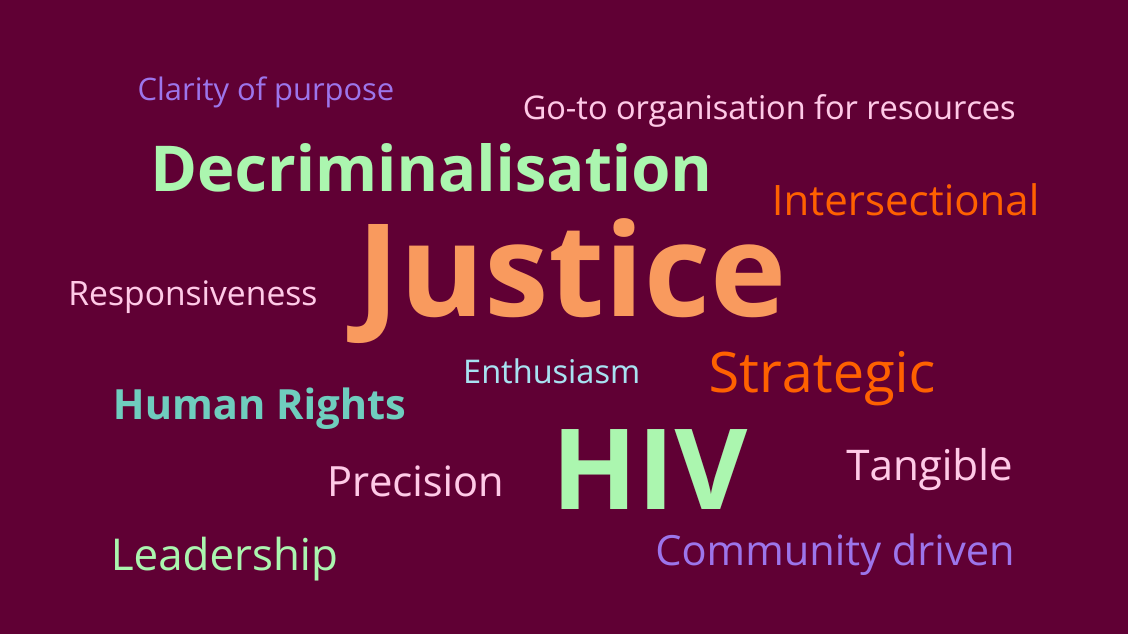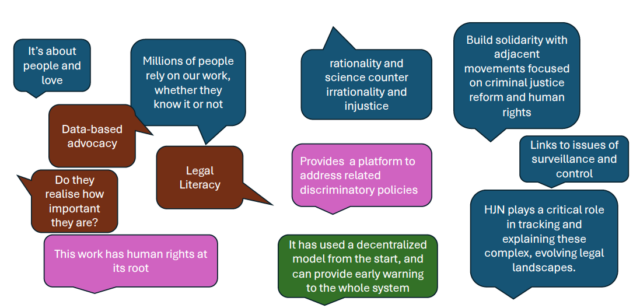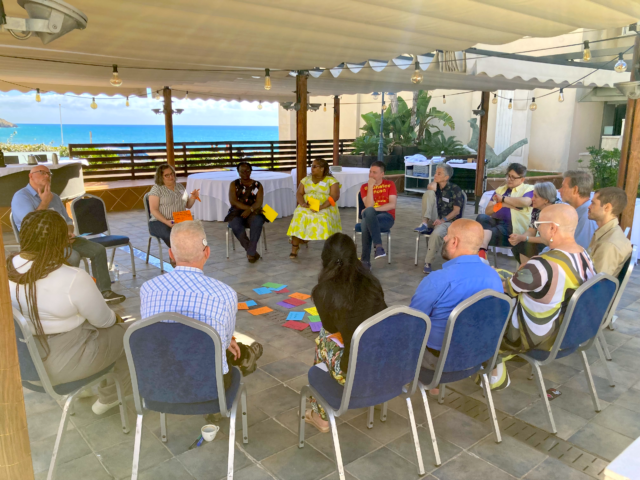
The HIV Justice Network (HJN) is two years into our 2022–2026 Strategic Plan, prompting a mid-term review to evaluate its relevance, coherence, and adaptability.
Earlier this year, we worked with a team of experienced consultants utilising an ‘appreciative inquiry’ framework to undertake a mid-term review of our strategy.
We reached out to some of our key stakeholders – our Global Advisory Panel, our HIV JUSTICE WORLDWIDE coalition members, external partners and current and potential donors to:
- Assess our strategy’s relevance to the HIV response.
- Evaluate coherence between our work and our strategic goals.
- Identify strengths to build upon and areas needing adjustment.
- Offer guidance for refining the strategy.
- Highlight the significance of our contributions to the HIV sector.
The review reaffirmed the relevance and coherence of our strategy while identifying opportunities to deepen our impact through enhanced intersectionality, expanded advocacy, and stronger global networks.

Key Findings
- Signature Strengths
HJN plays a key role in addressing punitive laws and policies that impact people living with HIV, a unique focus within the broader HIV response. Stakeholders praised our clarity of purpose and strategic focus, positioning us as a global leader in this area.
Specific strengths include:
- Real-Time Monitoring: Responsive to the evolving legal and social landscape.
- Innovative Projects: Our learning / training platform, the HIV Justice Academy enhances our reach and relevance.
- Intersectionality: Connects our advocacy with broader social justice movements, supported by multilingual outputs.
- Coherence
Our work aligns strongly with our strategic goals, as outlined in our Theory of Change. Respondents highlighted:
- A well-defined focus on HIV criminalisation.
- Clear articulation of goals and mission.
- Diverse global representation within the HIV JUSTICE WORLDWIDE movement that we co-ordinate.
- Areas for Consideration
The review identified opportunities for us to enhance our impact and address emerging challenges:
- Intersectionality: While stakeholders value our intersectional approach, opinions diverged on how much to expand into related areas like LGBTQ+ rights, racial justice, and public health.
- Justice beyond HIV criminalisation: Respondents encouraged HJN to explore broader legal and social issues, including:
- Equal rights and healthcare access.
- Societal discrimination beyond the legal system.
- Intersectional impacts of laws on gender and migration.
- Strengthening the network:
- Expand our membership, particularly in underrepresented regions like Asia.
- Increase accessibility and appeal of HJN’s messaging by collaborating with youth-led communication groups.
- Build alliances with broader social justice movements (e.g., gender rights).
- Funding Diversification: While HJN has secured some new funding streams, we are over-reliant on one or two funders: stakeholders recommended that we engage with human rights and social justice funders beyond the HIV sector.
These findings prompted deep discussion for the HJN Team and Supervisory Board’s in-person workshop in Sitges, Spain, which took place in late September.

During the workshop we committed to maintaining our core mission – to support individuals, communities, and organisations around the world to effectively advocate against discriminatory laws, policies and practices that unjustly regulate, control, or criminalise people living with HIV – while addressing complementary issues that support our vision: a world where people living with HIV, in all our diversity, can enjoy our human rights and live in dignity, without fear of unjust criminalisation, regulation or control.
These include working on global HIV migration issues: we are about to launch a revamped version of The Global Database on HIV-Specific Travel and Residence Restrictions (hivtravel.org).
Conclusion
Our core programmatic focus ensures that we are in a good position to build upon our strengths — advocacy, training, and knowledge-sharing — while embracing innovation and inclusivity. By anchoring our activities in our mission and refining our approach based on data and feedback, HJN is well-positioned to make a meaningful, sustainable impact in the global fight against HIV-related stigma, discrimination and criminalisation.